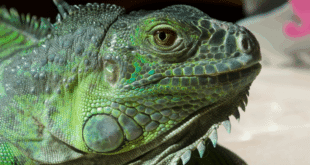Tunisia undertakes urgent and important efforts to protect the Sloughi. An ancient sighthound, the Sloughi holds a unique place in Tunisia’s cultural heritage. The Central Canine Tunisienne estimates that less than 200 purebred Sloughis are left in Tunisia, sparking concerns over the breed’s survival.
Since centuries, the Sloughi has been closely linked with North African nomad tribes. Its lean and muscular body, incredible speed and keen hunting instincts make it an indispensable partner in hunting and protecting livestock. Sloughi has a long history of being more than a working dog. It was also a beloved companion who lived with its owners.
Several factors, however, have contributed to the rapid decline of purebred Sloughi in recent decades. The genetic purity of the Sloughi breed has been diluted by uncontrolled breeding with other sighthounds, and the loss of nomadic cultures has diminished the environment where the Sloughi breed thrived. Urbanisation and modernisation has also shifted social structures, reducing the importance and presence of this breed. This combined effect has brought the Sloughi to the edge of extinction in the country of its origin.
The Central Canine Tunisienne, in response to the urgent situation, has launched a comprehensive conservation program. In the first phase of the programme, all remaining purebred Sloughis are surveyed and identified. The CCT is establishing a provisional standard for the breed that will distinguish genuine Sloughis from other mixed-breeds. The programme will then implement controlled breeding over at least three generation to rebuild and reinforce the genetic pool. The ultimate goal is to submit documentation to the Fédération Cynologique Internationale (FCI) to secure official international recognition for the Sloughi as a distinct and protected breed.
Sloughi dogs are culturally significant for reasons that go beyond their physical appearance. This breed represents an intangible piece of Tunisia’s heritage. It embodies centuries of traditions and the bond between people and animals in North African cultures. The Sloughi breed is a living piece of Tunisia’s intangible heritage, a symbol of centuries of tradition and the bond between humans and animals within North African societies.
Breeders in the area and the communities around them have been very supportive of the conservation effort, especially those living in the areas where the breed was traditionally the most common. Breeders support a return of established breeding methods which prioritise the genetic purity and discourage uncontrolled crossbreeding. They also advocate for greater involvement of the government, including legislative and funding measures, in order to protect Sloughi, and increase public awareness regarding its endangered status. Breeders, government officials, and conservationists must work together to reverse decades-long declines in order for the Sloughi to have a future. If this programme is successful, it will save an ancient race from extinction and ensure that future generations are able to continue appreciating the Sloughi. The ongoing efforts are a reflection of a commitment to preserve this breed and its traditions.
 Costa News Spain Breaking News | English News in Spain.
Costa News Spain Breaking News | English News in Spain.





